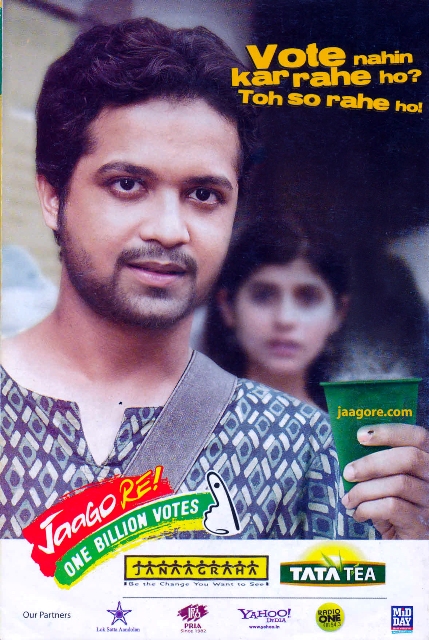The latest World Economic Forum report states that India is the fastest growing, large economy (GDP growth–7.5%), and by 2030 is forecasted to become a USD 6 trillion economy. This consumptiondriven economy is creating a new landscape, governed by consumers and stakeholders like the NGOs and media.
The private sector and brands are not just enablers of economic growth but are also being pushed to play a larger role in the societal fabric to ensure that the Bharat v/s India divide doesn’t widen… that the soft underbelly does not derail the Indian train.
While brand Purpose is an accelerating trend and a buzzword, it often gets misunderstood by many as a mere theme for creating emotional advertising using social issues to garner saliency.
There is a difference between an organization’s mission and Purpose. Walt Disney’s purpose “to make everyone happy” is enduring and inspiring across many decades. Their Purpose creates a single unifying principle that connects all the business verticals of the company. It explains Disney’s service expectations with absolute clarity and in a simple language that everyone in the organization, at every level, can understand and articulate.
Most brands and companies have already started to redefine their ethos by asking why they are in the business they are in. If the business succeeds, what would the world look like? What is their belief and what do they want to be known as? This is redefining their traditional charity-based CSR strategy, to a more Purpose-led business strategy.
Unilever’s Dove brand is a great example of how Purpose articulates its distinct brand perspective, which influences what the brand does. Dove’s Purpose aims to make beauty a source of confidence, not anxiety. The stereotyping of beauty is a reason for anxiety and low self-esteem in young girls and inhibits them from achieving their potential.
In order to carry forward its Purpose, Dove is helping girls worldwide to improve their self-esteem. By partnering with leading experts in the fields of psychology, health and body image, it is creating programmes of evidence-based resources ― including parenting advice ― to help young people form healthy friendships, overcome body image issues, and be their best selves.
This has moved Dove from being a commodity (beauty soap) to a ‘Brand’ working to ensure the next generation grows up enjoying a positive relationship with the way they look.
Nike’s Purpose: ‘To bring inspiration and innovation to every athlete in the world. If you have a body, you are an athlete’ ― is perfectly aligned to the core business. Nike’s growing consumer demographic are millennials. They’re more racially and culturally diverse, more socially conscious and more likely to support social justice issues than older generations.
Building from their Purpose, Nike’s two-minute commercial released last year highlights superstar athletes LeBron James, Serena Williams and others, and touches on the controversy of NFL players protesting against racial inequality, police brutality by kneeling during the national anthem.
The endorsement deal between Nike and American activist and footballer Colin Kaepernick (who plays narrator in the ad) triggered a flood of debate, with some calling for a boycott of the company’s products. Nike set a great example of actioning its Purpose, to take a stand for beliefs.
 The Jaago Re campaign by Tata Tea started in 2007 is an example of how societal good can be achieved along with business objectives. Tata Tea’s Purpose is to bring an awakening in society while being true to what the brand and product
The Jaago Re campaign by Tata Tea started in 2007 is an example of how societal good can be achieved along with business objectives. Tata Tea’s Purpose is to bring an awakening in society while being true to what the brand and product
serve.
Over the years, Jaago Re has become a social platform addressing critical civic issues prevailing in the society,
like understanding who you vote for, corruption, voter turnout, and women issues.
The campaign website is an enabler for the citizens to join the movement by taking pledges and building awareness through their stories. The campaign depicts a holistic understanding of civic issues, managing cultural sensitivity and building on the work being done by NGO partners like Janaagraha, CHRI, Breakthrough and Haiyya.
In this new era, companies are being challenged to think beyond short term profits, to embed long term prosperity and sustainability in their purpose and strategy.
This opinion piece was first published in the April 2019 issue of our print magazine. Click here to grab a copy
 Meeta Singh is Founding Partners, ikigai Strategy Consultants. She had an extensive stint of 22 years across marketing, advertising and sustainable business across Unilever brands, Ogilvy and Lowe, MTV and BBC. One of the initial sustainability professionals in India, she has a Postgraduate Certificate in Sustainable Business from Cambridge University, UK.
Meeta Singh is Founding Partners, ikigai Strategy Consultants. She had an extensive stint of 22 years across marketing, advertising and sustainable business across Unilever brands, Ogilvy and Lowe, MTV and BBC. One of the initial sustainability professionals in India, she has a Postgraduate Certificate in Sustainable Business from Cambridge University, UK.
Views of the author are personal and do not necessarily represent the website’s views.
Thank you for reading the column. In addition, your thoughts and inputs will genuinely make a difference to us. Please drop a line and help us do better.
Regards,
The CSR Journal Team

